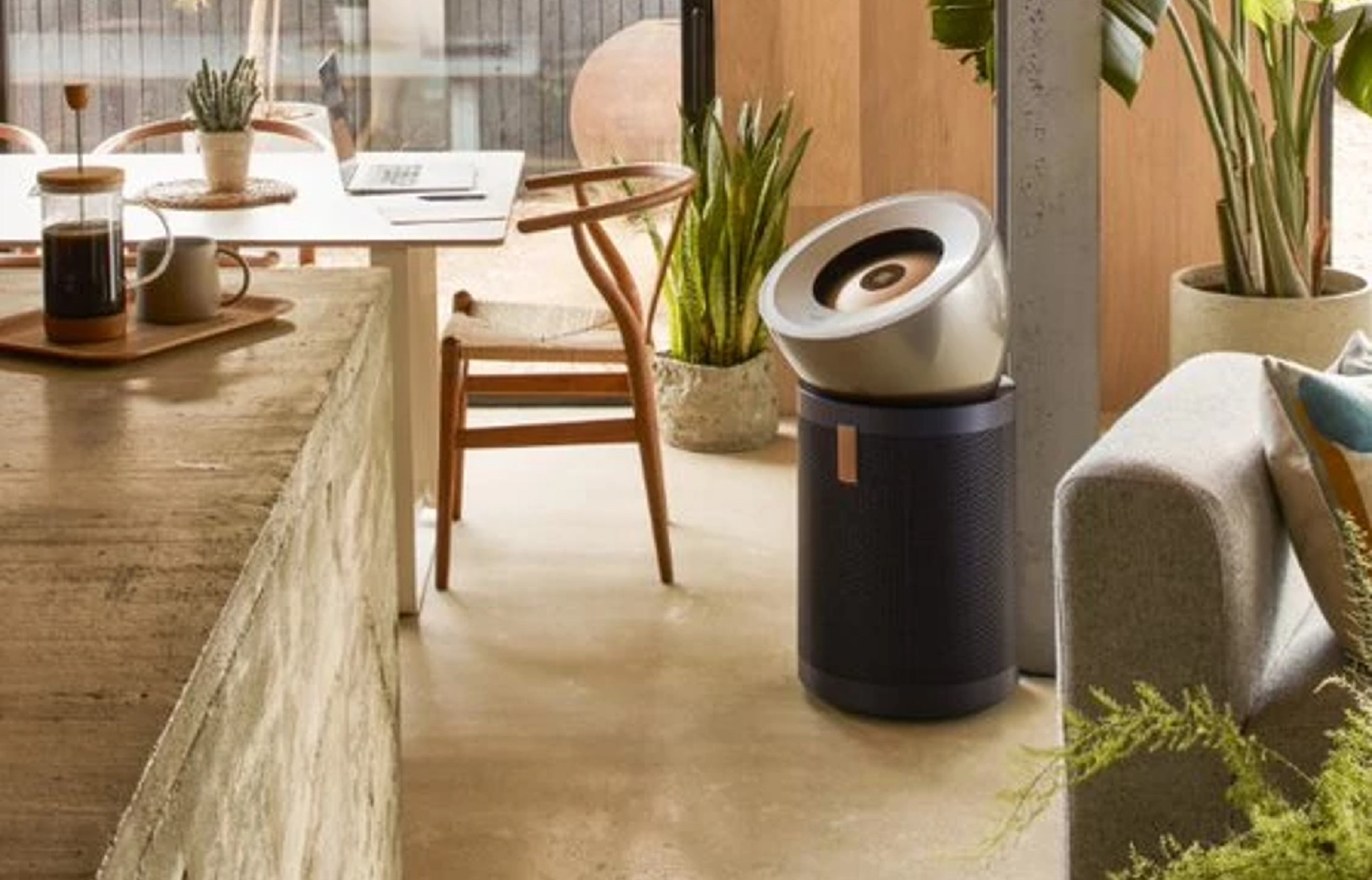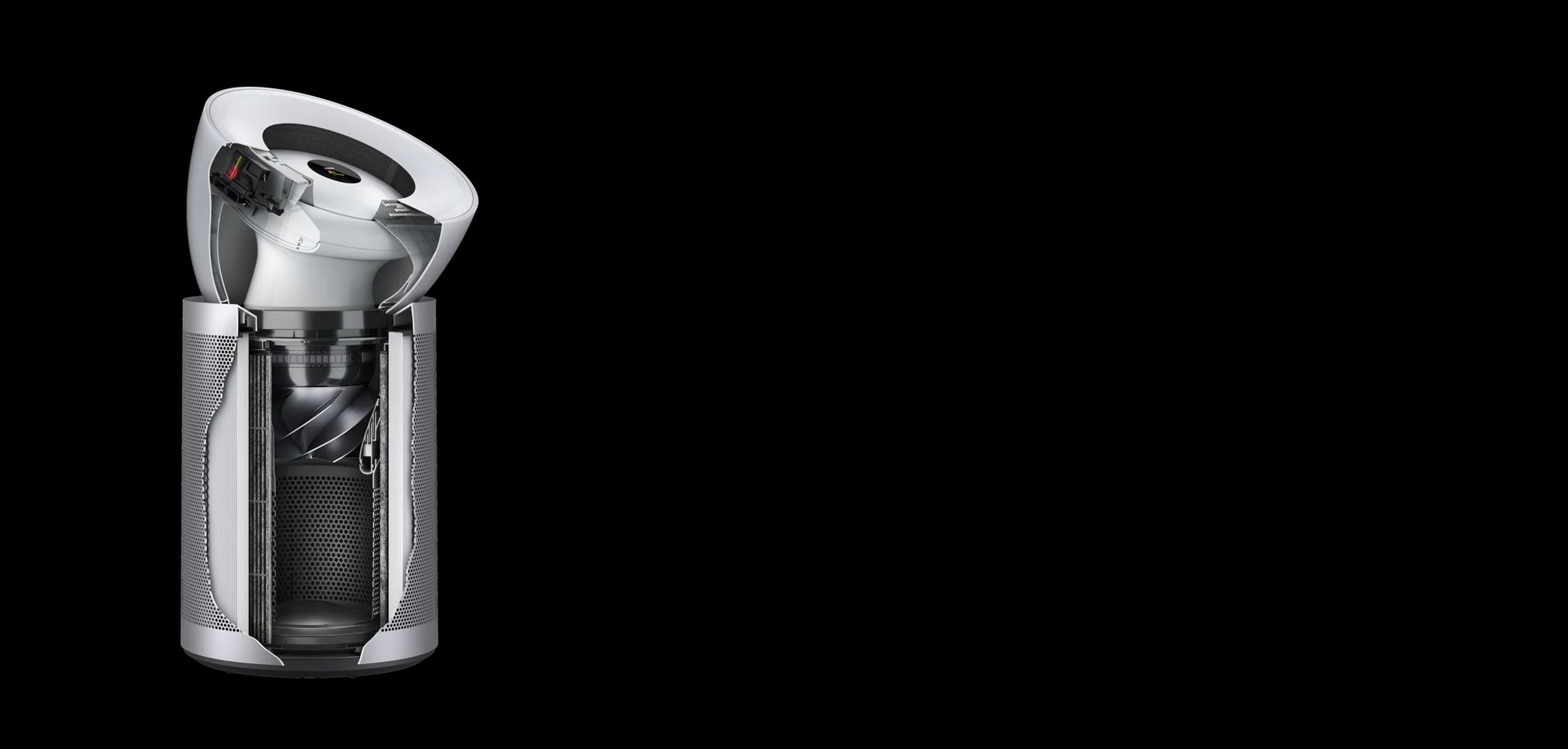The new Dyson Big+Quiet Formaldehyde is its "quietest, most powerful purifier" yet
As its name suggests, it's big, it's quiet and it offers some seriously advanced air filter technology

Dyson’s been on a roll in recent weeks with product announcements and it’s not showing any signs of stopping with the launch of the Dyson Purifier Big+Quiet Formaldehyde.
Not to be confused with the Dyson HEPA Big+Quiet Formaldehyde, which is designed for offices and other professional spaces, the Dyson Purifier Big+Quiet Formaldehyde gets its name from the fact it's been built to purify the air in large homes and rooms, without ever exceeding 56 decibels of noise.
Described as Dyson’s “quietest yet most powerful purifier”, it processes as much as 87 liters of purified air every second, and propels it up to 10 meters, using what’s known as Cone Aerodynamics. This is a new airflow system that uses the Coanda effect to more than double the airflow of any of its other purifiers.
The Coanda effect is already seen in the Dyson Airwrap – it’s what pulls the hair towards the styling barrels and allows for hands-free curling – and in the Big+Quiet purifier it’s used to merge two streams of airflow into a condensed jet of air that propels the purified air far and wide around a room.
The Big+Quiet purifier uses the same three-step filtration system seen across the rest of Dyson's best air purifier range but with a wave of improvements. Firstly, the entire system is fully sealed to HEPA H-13 standard – the highest tier of air filtration – meaning it can remove 99.95% of all particles in the air as small as 0.1 microns in diameter. This includes dust, allergens, pollen, and pet hair, and once it’s in the filter, the seal makes sure it stays there. Dyson also claims this filter will last five years – five times longer than previous systems.
There’s a new CO2 sensor that tells the purifier when to ventilate the room, and a new K-Carbon filter said to be capable of capturing three times more Nitrogen Dioxide (NO2) than Dyson’s previous carbon filter. Such emissions can come from indoors – cooking and lighting candles – as well as from outdoor emissions that enter the home, from road traffic. This means it can also get rid of the odors that come from such sources.
Elsewhere, the Nickel and Dark Blue version of the Big+Quiet purifier features Dyson’s Selective Catalytic Oxidation (SCO) filter designed to break down formaldehyde molecules into tiny amounts of water and CO2 continuously, without ever needing to be replaced. Formaldehyde is found in tobacco smoke, as well as in some glues, paints, pesticides, cosmetics, and detergents. It can also be found in wood products such as cabinets, furniture, plywood, and laminate flooring. It’s 500 times smaller than 0.1 micron particles and this makes it difficult to trap, let alone destroy.
Get daily insight, inspiration and deals in your inbox
Sign up for breaking news, reviews, opinion, top tech deals, and more.
“At Dyson, we are dedicated to solving problems that others ignore, and air purification is no different,” explains Dyson Engineering Director, Environmental Care, Matt Jennings.
“The Dyson Purifier Big+Quiet Formaldehyde is our first purifier specifically engineered to purify properly in spaces up to 100m2. It blends highly effective filtration and powerful projection, to automatically respond to imperceptible pollution events. With new Cone Aerodynamics to project purified air over 10 meters, the Dyson Purifier Big+Quiet Formaldehyde can reach every corner of your living space.”
Dyson is yet to reveal the price or release date of this purifier. Dyson's Hot+Cool Formeldahyde purifier costs $769.99 / £699.99 / AU$1,149.00 and I'd expect this new model to cost similar.
Dyson did tell me that the Big+Quiet purifier will go on sale in Australia first, before coming to the US and UK. I'll update this story as soon as we find out more specific details.

Opinion: Advanced filter tech offers peace of mind, but it's far from subtle
After years of naively assuming the air quality in my home was safe – I don't smoke, I don't live by a main road, I don't have any pets, and there are few allergies in my family – I recently got a rude awakening whilst I was reviewing the Levoit Core 300S True HEPA air purifier.
Not only is the baseline air quality reading in the majority of the rooms in my house higher than I had expected, but I had no idea the level of pollutants released when simply spraying deodorant or cooking dinner. It makes me want to seek out the very best purifying technology, and that's what Dyson has seemingly built with its new Big+Quiet purifier.
I love the sound of its fully sealed, high-grade filter, and the fact that this filter won't need to be replaced for years. Dyson hasn't revealed how much this purifier will cost yet but we imagine it won't come cheap, so any savings on replacement filters will undoubtedly be welcomed.
Knowing that even the smallest of particles are being filtered from my home would definitely give me peace of mind, as would the addition of the formaldehyde filter – a rarity, even among the more expensive purifiers on the market.
We have a relatively large house so the 10-meter coverage sounds impressive. However, we've previously used $150-$200 purifiers that are more than suitable for the size of the rooms we need the purifier for, so this feels like a nice-to-have rather than a necessity.
Plus, although the use of the word "Big" in the purifier's name refers to the fact it covers such large spaces, it looks like it could also be used to describe the purifier itself. In the press images, this purifier looks less than discreet. If anything, I think it resembles a high-tech trash can and it's certainly not for people with minimal aesthetics or understated decor.
Victoria Woollaston is a freelance science and technology journalist with more than a decade’s experience writing for Wired UK, Alphr, Expert Reviews, TechRadar, Shortlist and the Sunday Times. She has a keen interest in next-generation technology and its potential to revolutionise how we live and work.
